Extending the qualified majority in the Council of the EU: merits and limits

Vision Think Tank 20230
The dismantling the totem of unanimity has long been considered the small step change in the decision-making procedures, that can be a giant step in the European Union's integration process. However, the past three years of increasingly rapid and intense crises have definitively demonstrated the urgency of finding a reasonable solution to an old question. Today, it is not only the "federalists" (for whom the integration has some moral significance), but also for the conservatives and the moderates who understand that liberating Europe from unanimity is a condition for survival vis-à-vis shocks that require rapid decisions.
Let's take a step backward. The Council of the EU1 takes decisions according to various voting methods including qualified majority, unanimity, simple majority, and, in certain cases, reinforced qualified majority. According to the art. 16 of the Treaty of the European Union, “the Council shall act by a qualified majority except where the Treaties provide otherwise”2. Indeed, the qualified majority is the default method of voting within the Council, and it is employed during the ordinary legislative procedure. Approximately 80% of all EU legislation is enacted through this procedure. The Council votes unanimously on matters considered sensitive by the member states and these strategic sectors are exhaustively listed in the treaties3. The simple majority requires instead that 14 member states vote in favour and it happens in the case of how the Council of the EU itself operates. In some cases, the proposal is considered adopted with "reinforced qualified majority"4.
To understand both the merits as well as the risks of extending the qualified majority voting mechanism, it can be useful to refer to two recent examples, both of which saw Hungary as the most undisciplined member of the club. Understanding the logic that inspires Viktor Orbán can provide a decisive contribution to transforming an ancient request into a realistic proposal. In a year of unexpected unity among European countries regarding the invasion of Ukraine, Budapest represented the most formidable obstacle to implementing ten packages of sanctions against Russia (just like Turkey within the NATO).
The embargo on crude oil imported from Russia required unanimous agreement from the 27-member European Union. The compromise resulted in an immediate embargo on crude oil arriving from Russia by sea with exemptions for oil arriving from pipelines from which Hungary, Slovakia, and the Czech Republic continued to draw. However, exceptions were allowed also for Poland and Germany and, even more significantly, the original proposal of banning the EU shipping industry from carrying Russian crude oil, was dropped by the European Commission following hard lobbying from Malta and Greece.
Vetoes become not only an opportunity for blackmail, where the recalcitrant party is often rewarded for its resistance, but - even more seriously - an occasion for creating loopholes that others can take advantage of without exposing themselves. In this case, the veto has enormous costs, not only in terms of speed but also in terms of contagious ambiguities that multiplies under the shelter of the rhetoric of "unanimous agreement." However, forcing decisions and actions are no less damaging. In another moment of severe crisis, in 2015, the European Council decided to apply the possibility of qualified majority voting to a type of policy - migration policy - which, unlike foreign policy, does not require unanimity. Under the Treaties, EU legislation on matters relating to asylum and migration should be established under the ‘ordinary legislative procedure’, where a qualified majority is sufficient.
In 2015, Italy and Greece were increasingly and severely affected by migratory flows. The Council adopted a decision with a qualified majority, which established provisional measures aimed at relocating migrants amongst Member States so that pressure on Italy and Greece could be eased. The decision was adopted with the opposition of the Czech and the Slovak Republics plus Romania and Hungary and the abstention of Finland. Two months later, Hungary and the Slovak Republic challenged the decision in front of the Court of Justice of the European Union: this is also costly in terms of the perceived cohesion of the block and strength of its decisions.
A decision-making mechanism blocked by vetoes is no longer sustainable in the face of increasingly rapid crises (and the same applies to many other multilateral bodies). And yet, we must be aware of the risks of abandoning what is a legacy of the twentieth century. It is right to extend the mechanisms of qualified majority voting to more policies (for example, those related to security policy, but also, no less importantly, harmonization of corporate taxes in a free trade area).
However, this possibility, which can be introduced even without a treaty change (through so-called "passerelle clauses"), must include flexible mechanisms without which the European construct would break. It is right, for instance, to decide that a subgroup of the Union comes together – as has already been done for monetary policies – to coordinate new investments in technologies in defence and cybersecurity. And yet it is crucial that those who do not agree have the option to opt out the specific alliance/ common project that they do not endorse.
This opt-out possibility should also be callable both at the time of the approval of a given common policy or later if conditions change. In a not-unanimity bound, more efficient Union, member states may even be granted a more transparent, predictable mechanism for separation (article 50 proved to be not enough clear procedure for enacting withdrawal).
Just like marriages before the possibility of divorce was introduced, the Union today suffers from an excess of rhetoric that costs a lot in terms of both time and the effectiveness of choices. An institution capable of surviving very unstable times has the duty to seek greater efficiency. Overcoming the totem of unanimity can bring everyone together and this is not the case of the recent “coalition of the willing” of nine member states (the six founders plus Spain, Finland and Slovenia) declaring themselves the friends of “qualified majority”5. This will happen only if we use transparency and flexibility to manage the conflict that is an unavoidable part of relations between different national communities.
------------------------------
0: The author of the paper are Francesco Grillo and Giorgia Caianiello from Vision Think Tank.
1: The Council of the European Union is the institution composed by government ministers from each country. They meet there to convene to deliberate, modify, and approve laws, as well as coordinate policies.
2: Common foreign and security policy, citizenship, EU membership, harmonisation of national legislation on indirect taxation, EU finances, some provisions in the field of justice and home affairs.
3: When the Council votes on a proposal by the Commission or the High Representative of the Union for Foreign Affairs and Security Policy, the proposal is adopted if a qualified majority is achieved. A qualified majority is reached if two conditions are simultaneously met:
- at least 55% of the members of the Council (15 out of 27) vote favourably;
- the representing Member States comprising at least 65 % of the population of the Union.
4: When the Council of the European Union votes on a proposal that is not originating from the Commission or the high representative, it could vote with the reinforced majority that requires:
- At least 72% of member states, which practically means a minimum of 20 out of 27, vote in favour of the proposal.
- The member states supporting the proposal represent at least 65% of the total EU population.
5: Joint Statement of the Foreign Ministries on the Launch of the Group of Friends on Qualified Majority Voting in EU Common Foreign and Security Policy, https://www.auswaertiges-amt.de/en/newsroom/news/-/2595304

